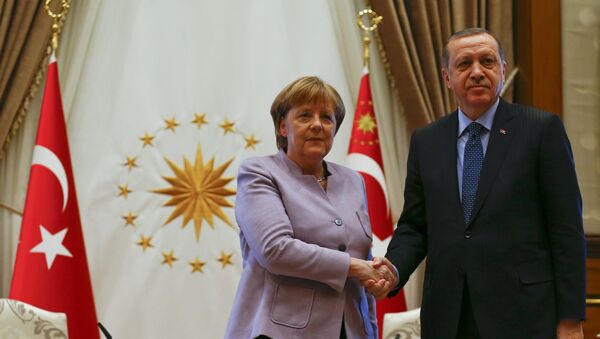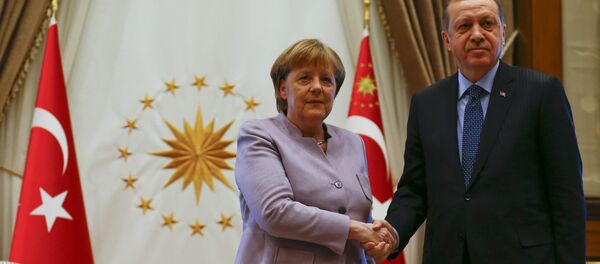However, Bundestag MP from the German Die Linke Party Sevim Dagdelen believes that Merkel's speech was an attempt to improve her image in the eyes of the German public, rather than a real concern about numerous violations of the freedom of press in the country.
"In general, it was silent support for President Erdogan's policies, namely, his course toward the creation of an oppressive Islamist state. The fact that Merkel said a few words about democracy and human rights — which, by the way, she rather hastily muttered — were an essential part of her mandatory speech to simulate concern in front of the German public. But it was very clearly seen what it was all about: Merkel was interested in economic cooperation and didn't really care about democracy and human rights," the politician told Sputnik Germany.
According to the politician, Merkel did not discuss any key issues during her meeting with Erdogan, including the controversial constitutional amendments that would give more power to the president. The draft of the reforms was approved by 339 parliament members on Saturday and will be submitted to a national referendum.
"One of the key problems is that the opposition doesn't take part in the game, because it is partially under arrest. In addition, the media landscape in Turkey is practically controlled by the ruling Justice and Development Party (AKP). In this context, it is impossible to talk about a free and fair referendum. Although Merkel has proposed to deploy OSCE observers to monitor the voting, the problem lies in the atmosphere and the conditions in which the referendum will take place," Dagdelen noted.
The recent plans to carry out a constitutional reform to boost the Turkish president's powers raised further concerns among EU member states as well as the Turkish opposition and the Kurds. The controversial bill seeks to give President Recep Tayyip Erdogan sweeping powers in a move described by the opposition Republican People's Party and the pro-Kurdish Peoples' Democratic Party as a power-grab.





